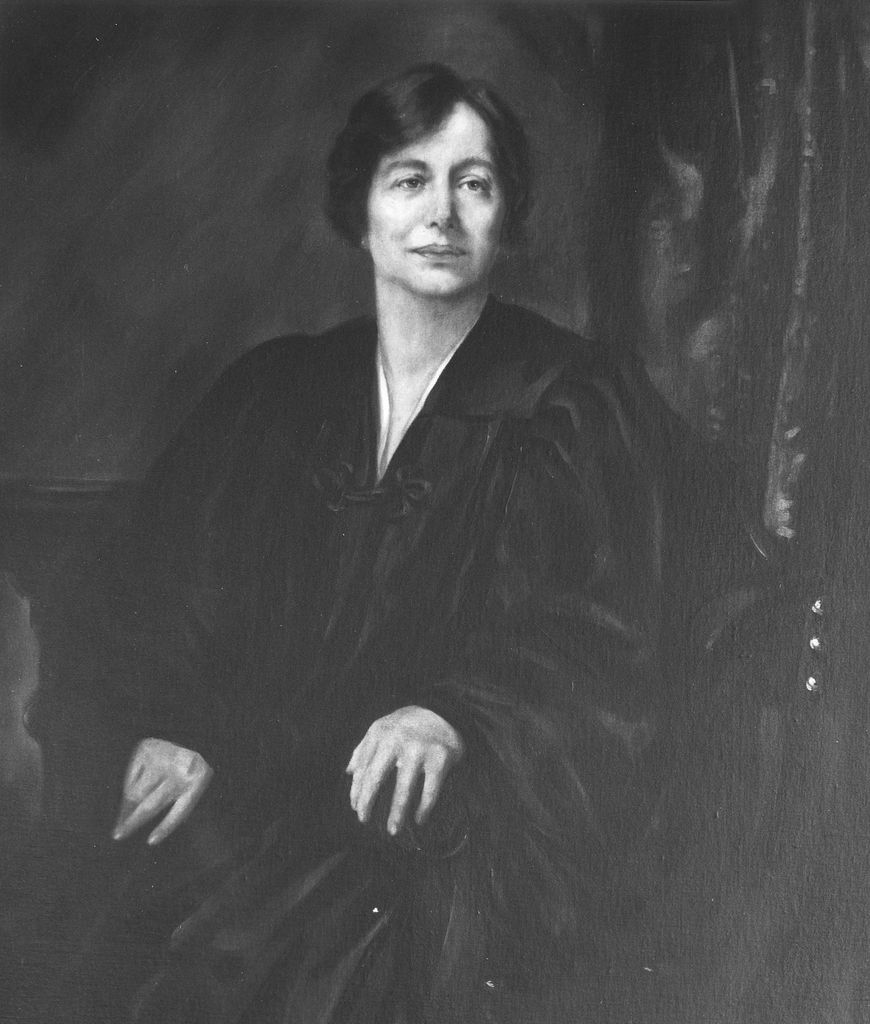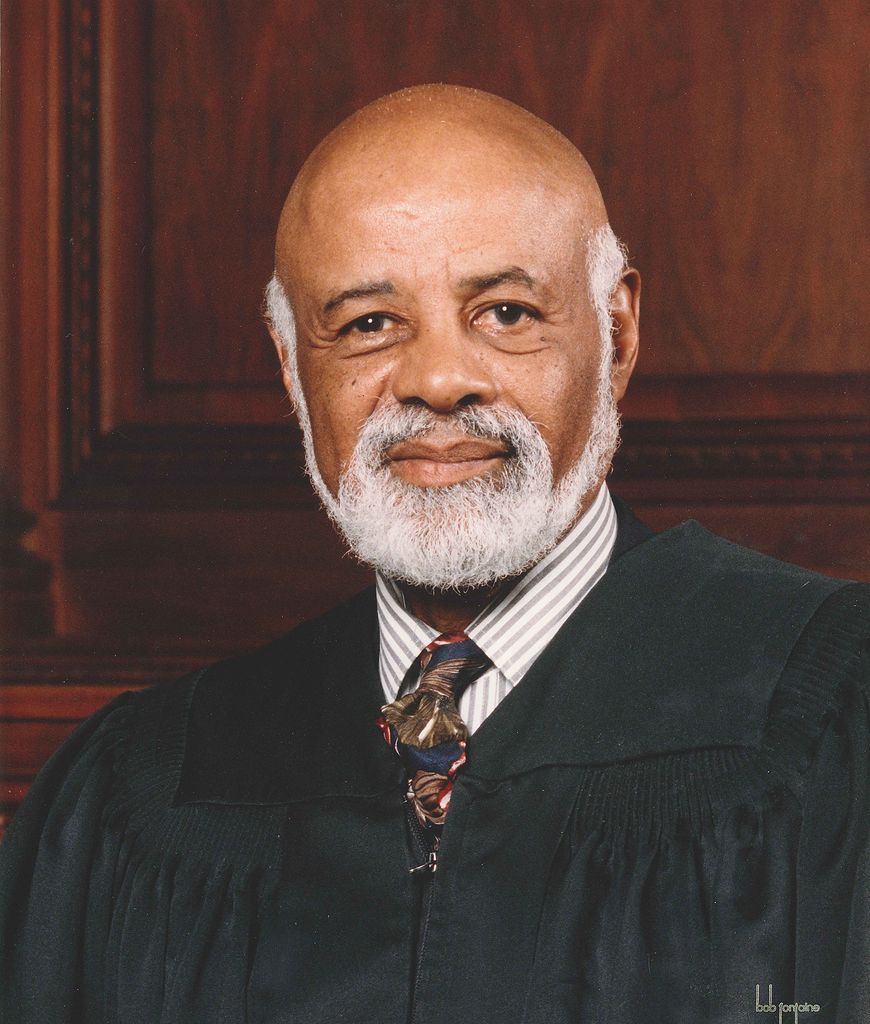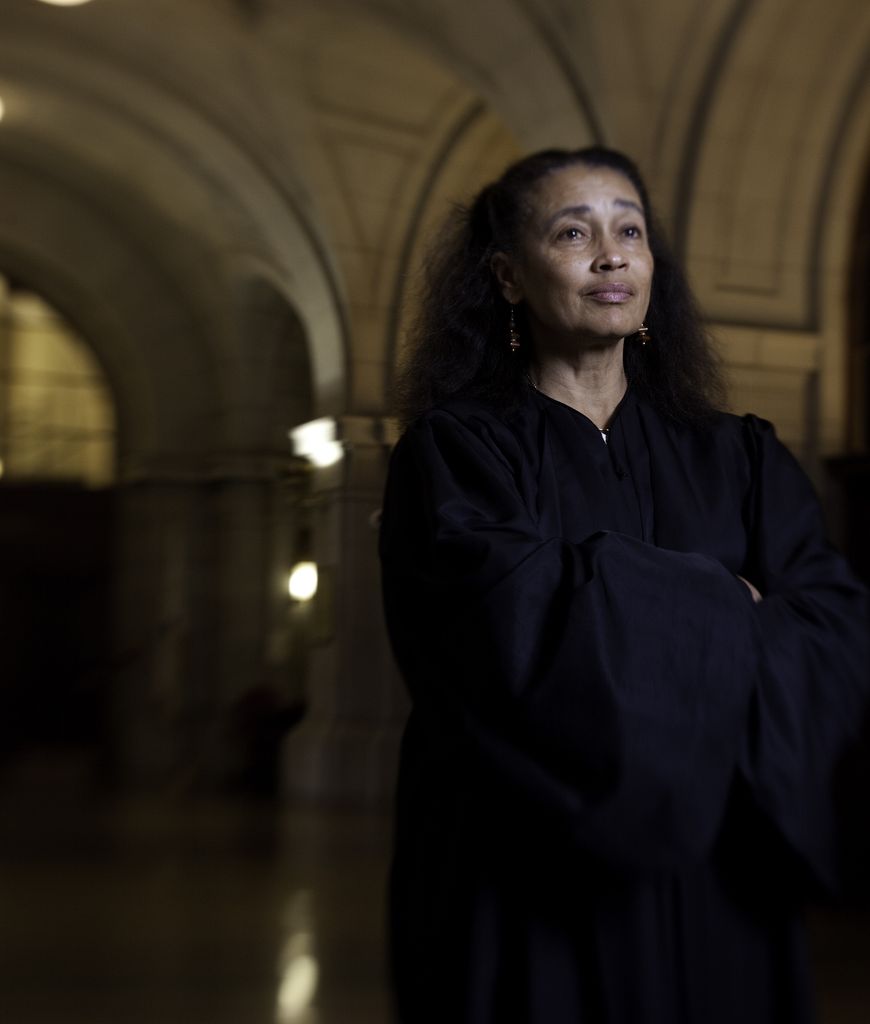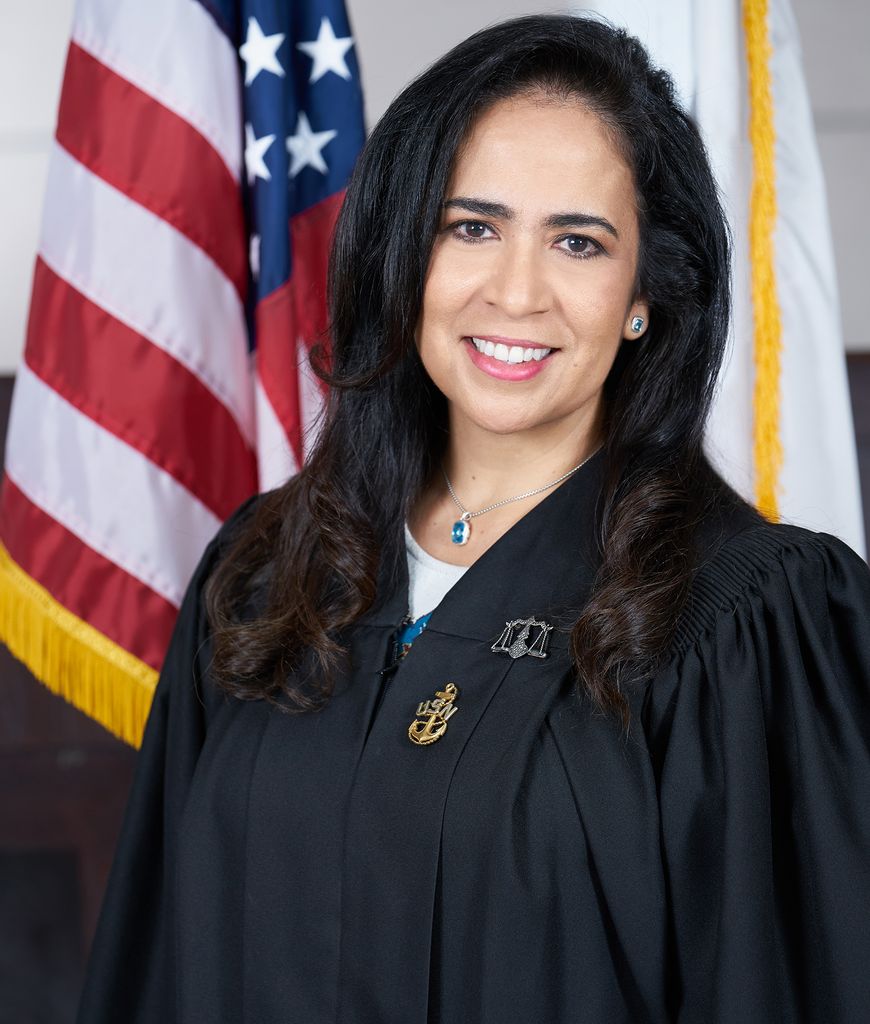Setting Precedents
Four alumni who made their mark on the judiciary.

Setting Precedents
Four alumni who made their mark on the judiciary.
Since its founding in 1872, Boston University School of Law has taken considerable pride in its faculty, staff, students, and alumni. It was with our community in mind that we set out to create 150/150, a commemorative book featuring 150 profiles of people, places, and events that have shaped the school and the world.
Throughout the school’s anniversary year, The Record is publishing a selection of the profiles that appear in the book. We present here alumni who made their mark on the judiciary. Some played critical roles in landmark precedents while others went beyond their duty of interpreting the law to make the judicial system fairer for everyone.
learn more about 150/150: people, places, precedents
Emma Fall Schofield

Emma Fall Schofield (JD 1908, LLM 1930) broke barriers during her career. In 1922, she became the first woman to serve as commissioner on the Industrial Accident Board in Massachusetts. During the next decade, she would assume the roles of probation officer and assistant attorney general—both firsts for a woman in the commonwealth. Then, in 1930, Schofield and fellow alum Sadie Lipner Shulman (1911) marked a watershed moment when they became the first women appointed to the bench in Massachusetts. Schofield took a seat as associate justice of the First District Court of Eastern Middlesex County and served 27 years in the Malden court until retiring in 1957.
Beyond the courtroom, Schofield was revered as a turn-of-the-century renaissance woman. She was an author of three books, a renowned lecturer, and a professor of law at Portia Law School, which was founded by Arthur MacLean (1906)—now New England Law | Boston. Schofield traveled the world, most notably with her husband through South Africa, and was a lifelong learner. Fifty years after receiving her first degree from BU, she received a doctorate in education from Calvin Coolidge College. Later in life, she would go on to receive honorary degrees from Curry College and Portia Law School.
Throughout her career, Schofield used her voice and platform to support several women’s causes, as well as civic, political, and humanitarian movements. In particular, she viewed herself as a role model for women who wished to pursue a profession outside the home. “We are living in a wonderful age, and everything is opening up for women,” wrote Schofield. “To-day almost every trade, business, and profession is open to you. There is no need of making martyrs of yourself.”
Alton Wiley
Alton Wiley (’56) made history when he became the first Black judge to sit on both the district and superior courts of Rhode Island. It’s an achievement that can be traced to his parents, says his sister, Bev Wiley.

Growing up in Warwick, Rhode Island, during the Depression, Wiley’s parents told their five children that they could achieve anything, but that they had to work twice as hard to get ahead. “Every one of my siblings in their own right has made a mark due to our upbringing and guidance of our parents,” said Bev Wiley.
At the University of Rhode Island (URI), Alton Wiley’s hard work paid off on the track, where as a sprinter, he won regional and conference titles and earned himself a spot in the university’s athletics hall of fame. He also served as a cadet in Army ROTC and was later stationed in France as a second lieutenant.
After graduating from BU Law, Wiley began his legal career as Rhode Island’s first Black assistant US attorney. He went on to serve as a public defender and counsel before being appointed to the Rhode Island District Court in 1980 and the Superior Court in 1991.
Wiley also served as vice president for student affairs at URI and president of the university’s alumni association. He was the recipient of honorary doctorates from URI and Bryant University.
O. Rogeriee Thompson
While the landmark 1954 decision of Brown v. Board of Education ruled segregation in public schools unconstitutional, the reality for African American students like O. Rogeriee Thompson (’76) growing up in the South was that schools remained largely separate—and not equal—well into the 1960s.

But as a freshman at a nearly all-Black high school in Greenville, South Carolina, Thompson learned about a program that placed promising students of color with host families in northern states. Thompson was matched with a family in the affluent Manhattan suburb of Scarsdale, New York, and in 1967, the fifteen-year-old boarded a train alone, bound for the chance of a better education.
Thompson was one of only four Black students at Scarsdale High, which was considered one of the best schools in the country at the time. She thrived academically in her new, adopted home and learned a valuable lesson about race and relationships—one that she carries to this day: “People are people. What is important in friendship is not color, but what you have in common.”
Following high school, Thompson earned scholarships to Brown University and later to BU Law. During law school, she worked as a clerk at the Harvard Legal Aid Bureau and interned at Rhode Island Legal Services, a nonprofit that represents underserved individuals.
Thompson graduated from law school in 1976 and returned to work with Rhode Island Legal Services. She later joined a private law firm, then served as assistant city solicitor for Providence, Rhode Island, before opening a small practice in South Providence in 1984.
One of her first clients in her new practice was the Narragansett Tribe, which had recently won federal recognition. Thompson negotiated the tribe’s settlement with the state, which transferred land from a private company back to the Narragansett. She remembers the experience of working with the tribe as “one of the greatest pleasures of my life.”
After more than a decade in private practice, Thompson was appointed to the Rhode Island District Court in 1988, making her the first Black woman to fill the role. Nine years later, she moved up to the state’s superior court. Then, in 2009, President Barack Obama nominated her to the US Court of Appeals for the First Circuit. She was confirmed unanimously by the Senate the following year. The appointment made her the first Black person and the second woman to ever sit on the court. She served for many years with fellow alums Sandra Lynch (’71) and Juan Torruella (’57).

During her time on the first circuit, Thompson has deliberated in complex civil and criminal cases, including a 2017 lawsuit that would have afforded Puerto Ricans the right to vote in US federal elections. She also authored the controversial 2020 appellate court decision that vacated the death sentence and overturned three firearm convictions of Boston Marathon bomber Dzhokhar Tsarnaev. The ruling was overturned by the US Supreme Court in March 2022.
In 2021, Thompson announced her intention to take senior status upon the confirmation of her successor.
Rebeca Martinez
Rebeca Martinez (’92), chief justice of the Texas Fourth Court of Appeals, is emblematic of an uneven statistic. While Hispanic people make up 39 percent of the Texas population, only a quarter of the judges who sit on the Texas Courts of Appeals identify as Hispanic. The disparity between the Hispanic population and representation on US appeals courts is even wider.

During her 2020 election campaign, Martinez acknowledged the responsibility she bears as both a justice and a person of color. “As a first-generation student, first to graduate in my family, and a proud #WiseLatina, I view myself as a servant, leader, and mentor, committed to achieving the highest ideals of the concept encapsulated in ‘We the People,’” she said.
Martinez, the daughter of a Vietnam veteran, received her law degree from BU, where she was the honored recipient of the school’s Faculty Award. She worked briefly with a Boston law firm before returning to her home state of Texas to work alongside judges in the US District Court for the Southern District of Texas and the Texas Thirteenth Court of Appeals. Martinez transitioned to private practice in the mid-1990s, then eventually founded her own litigation firm, which expanded to three offices over the span of twenty years.
In 2013, Martinez left her practice after being elected to the Texas Fourth Court of Appeals. She served as associate justice until rising to the position of chief justice in 2021. She has authored more than 1,000 opinions since taking a seat on the bench.
Over the years, Martinez has been active in several organizations that promote diversity and education, including the National Association of Women Judges and the Mexican American Bar Association. She also serves on the Dean’s Advisory Board at BU Law.
This Series
Also in
LAW150
-
June 7, 2023
Models for Modern Law
-
May 23, 2023
LAW Memories
-
May 16, 2023
The 150th: Vladimir Egiyan

